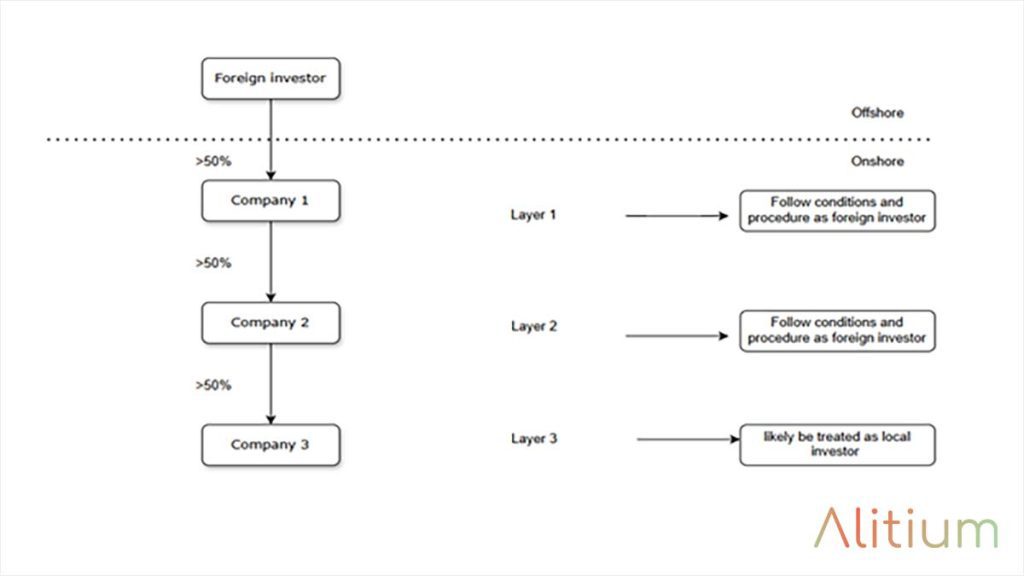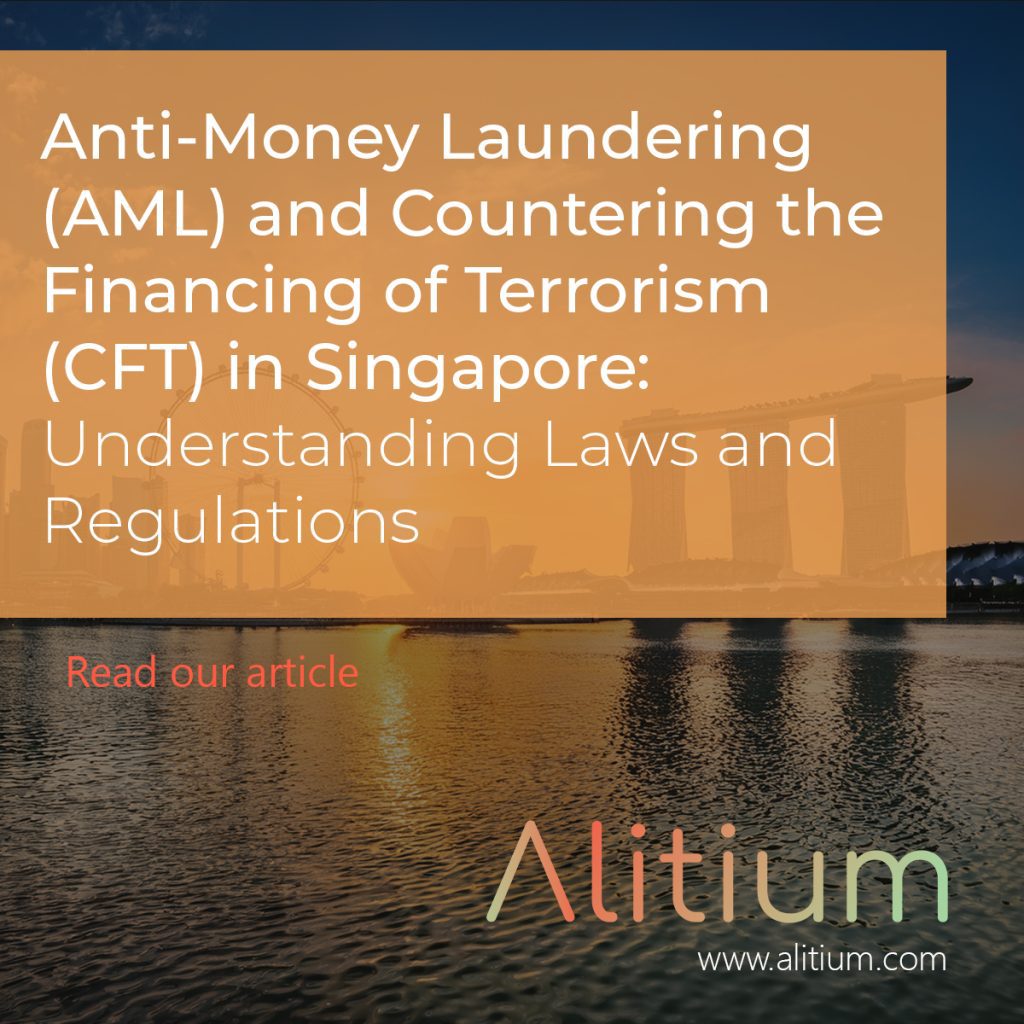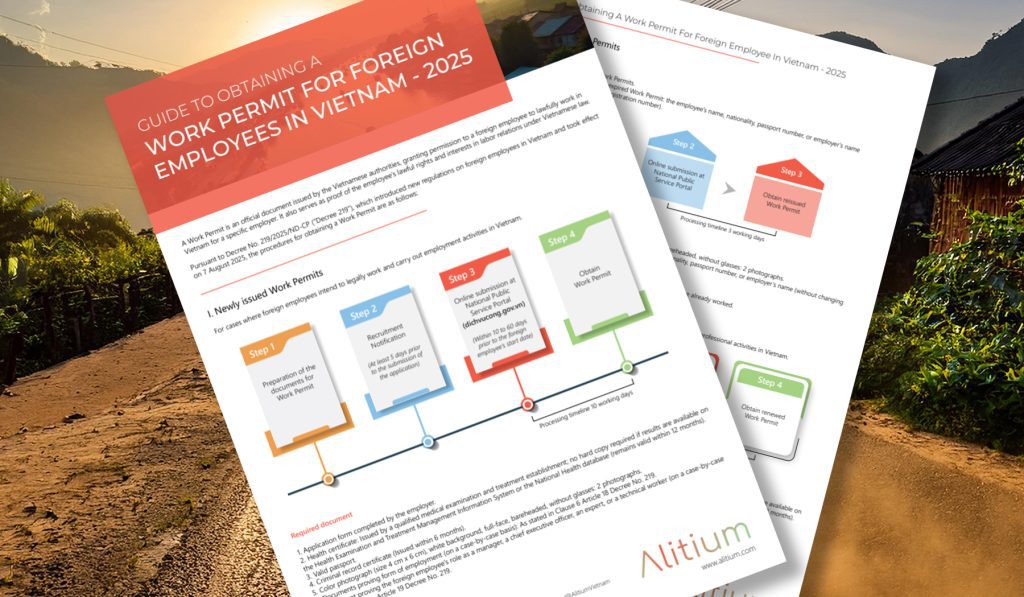In Vietnam, foreign investors must register the objectives of their investment projects and the corresponding business lines when establishing a company. While most business sectors allow 100% foreign ownership, certain sectors have restrictions on foreign ownership (e.g., advertising, logistics) or additional investment conditions (e.g., retail). Some sectors remain entirely closed to foreign investors and some to both domestic and foreign investors.
To maximize investment opportunities, a multi-tiered structure has emerged as a strategy to navigate these foreign investment restrictions. This approach leverages regulations outlined in Articles 23.1 and 23.2 of the 2020 Law on Investment, which delineate conditions under which an entity is considered a “local investor.”
Foundation for the approach
When establishing a new business, contributing capital, purchasing shares, or engaging in business cooperation contracts, the following guidelines apply:
- Direct Foreign Ownership: If foreign investors hold more than 50% of a company’s charter capital (referred to as “Layer 1”), such Layer 1 company must adhere to the same conditions and procedures as foreign investors.
- Indirect Foreign Ownership: If another company (referred to as “Layer 2”) holds over 50% of the charter capital and itself meets the conditions of the first point, the same foreign investment rules apply.
- Combined Ownership: If both foreign investors and companies (as defined in the first point) together hold over 50% ownership, such company (Layer 2) is subject to foreign investment conditions.
- Domestic Treatment: For those who do not fall into the any of the above, those can be likely treated as domestic investors. This may be interpreted in a way that the Layer 3 may be regarded as domestic investor when doing business in Vietnam, and offer an alternative for the investor to benefit from investment conditions and procedures similar to those for purely domestic entities.

Strategic Application of Multi-Tiered Structures
Based on the regulations, the Layer-3 entity may be treated as a local investor when it does not fall into the defined foreign ownership categories. The idea of this strategy is to set up a multi-tiers structure so that the business is a “deemed” local entity so that it can benefit the investment opportunities which have still widely opened for foreign investment. This strategy has been relatively broadly applied by foreign investors to get around restricted sectors.
However, the practical application of this approach varies across provinces, as local authorities interpret regulations differently. Additionally, Decree 31/2021/ND-CP, which provides guidance on the 2020 Law on Investment, does not explicitly affirm this approach. In practice, some local authorities have required the bottom-tier corporate level (Layer 3, even 4) to follow foreign investment procedures, deeming these entities as “foreign-invested.” Therefore, investors should approach this strategy with caution.
Potential Risks
As we have seen indications that certain authorities are less comfortable with using the multi-tiered structure, there remains a level of risk for investors in utilizing these structures. Although licensing approval may be received on the basis that Layer 3 is initially deemed a local investor, should an authority later deem this to be foreign invested or non-compliant (ie, when a change to an investment certificate is sought), then this can present a significant risk to the investor.
Conclusion
In conclusion, the multi-tiered investment approach offers both benefits and challenges to foreign investors. While the approach can offer significant advantages, such as being likely treated as a domestic company, it also introduces a layer of complexity (organizational structure, management, and as a result involved costs), and uncertainty due to the lack of explicit regulatory affirmation.
References
- 2020 Law on Investment
- Decree 31/2021/ND-CP
Phuong Vo is Managing Partner at Alitium Vietnam, providing market entry and professional support for foreign investors in Vietnam. Contact Phuong via Alitium.com for further assistance and advice.








